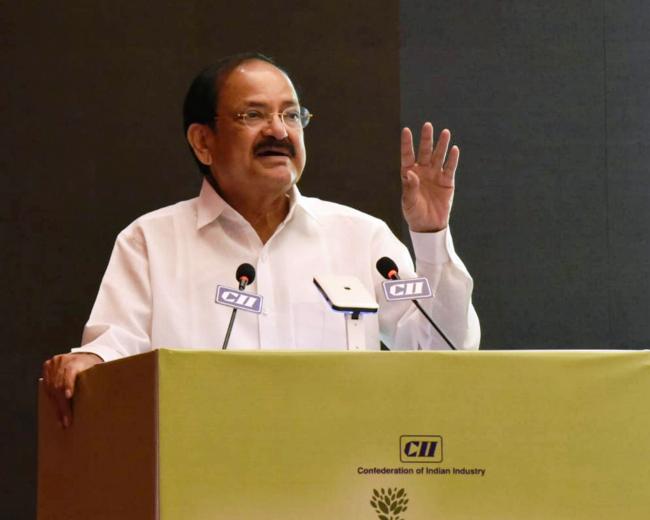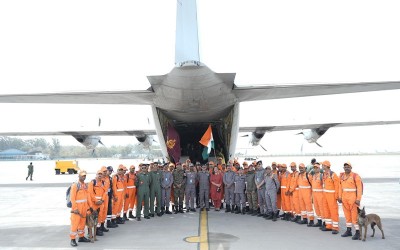
Bring in structural changes to make agriculture resilient, sustainable and profitable: VP Naidu
New Delhi, Jan 17 (IBNS): Vice President of India M Venkaiah Naidu has called for introduction of structural changes through policy interventions to bring in a positive bias towards agriculture and make it resilient, sustainable and profitable.
Inaugurating Agri-Vision 2019, a two-day conference on ‘Envisioning Agro Solutions for Smart and Sustainable Agriculture’ at Hyderabad, he stressed the need for a concerted action from all stakeholders to find comprehensive, long-term solutions to the multiple challenges faced by the agriculture sector. Short-term measures like loan waiver would provide temporary relief and would not be beneficial to the farmer in the long run.
Expressing his concern over the tendency of farmers to leave agriculture, the vice President said that lack of favourable terms of trade, the vagaries of monsoon, technology not reaching farmers in time and absence of proper marketing system were some of the reasons for agrarian problems.
Pointing out that declining productivity, diminishing and degrading natural resources, rapidly growing demand for food, stagnating farm incomes, fragmented land holdings and unprecedented climate change were some of the major challenges confronting Indian agriculture, he said traditional farming would not be beneficial and the farmer needs to diversify into allied activities to ensure sustained income.
Observing that the growth of the agriculture sector was critically important for inclusive growth, Naidu said that empowering the sector would not only reduce poverty but also helps in improving the livelihoods of lakhs of people connected to this vital sector. Agriculture sector accounts for 18 per cent of India’s GDP and provides employment to 50 per cent of the workforce of the country, he added.
The Vice President emphasized the need to accord top priority to farmer-oriented marketing, providing adequate cold storage facilities and refrigerator vans, focusing on food processing through value addition, extending timely and affordable credit to farmers and ensuring that innovations and technologies reach the farmers.
Naidu urged researchers and farm experts to come out with solutions to the multi-dimensional problems faced by the farming sector.
He called for united efforts by governments, scientific community, Krishi Vigyana Kendras and farmers to realize the ambitious goal of doubling farmers’ income by 2022.
The Vice President also suggested that students pursuing agri courses must spend at least six months with farmers to have a firsthand understanding of the problems faced by the latter.
Observing that the use of digital technologies was essential to tackle climate change and make farming environmentally relevant and sustainable, he said digital technologies could help in countering vagaries in farming and optimizing the resources.
He said that it was necessary to adopt the latest technologies from seeds to post harvest management to marketing and to improve productivity on par with the other leading nations.
He also emphasized the need for India to have its own home-grown food security as the country cannot depend on imported food security.
Support Our Journalism
We cannot do without you.. your contribution supports unbiased journalism
IBNS is not driven by any ism- not wokeism, not racism, not skewed secularism, not hyper right-wing or left liberal ideals, nor by any hardline religious beliefs or hyper nationalism. We want to serve you good old objective news, as they are. We do not judge or preach. We let people decide for themselves. We only try to present factual and well-sourced news.







